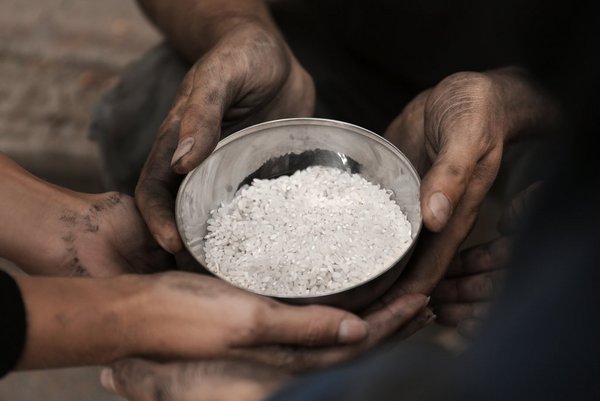- Share this article
- Subscribe to our newsletter
Call for urgent action to address the global food crisis
The ongoing food crises are pushing millions more towards food insecurity and hunger. On 21 September 2022, the heads of the Food and Agriculture Organization of the United Nations (FAO), the International Monetary Fund (IMF), the World Bank Group (WBG), the World Food Programme (WFP), and the World Trade Organization (WTO) published a second joint statement on the global food security and nutrition crisis.
According to the statement, continued, comprehensive and coordinated efforts are required to improve food security in four areas:
- Support efficient production and trade: Governments in all countries need to urgently re-examine their agricultural trade and market interventions, such as subsidies and export restrictions, to identify and minimise distortions. Shorter interventions cause less harm than indefinite ones. Promoting the production of nutritious foods and repurposing the USD 639 billion support per year provided to agriculture by governments can transform food systems and improve food security and nutrition. Preserving open trade in food, agriculture and energy can reduce price distortions that dilute incentives for efficient production. Countries should follow through on commitments made at the WTO’s 12th Ministerial Conference to restrain export restrictions on food and fertilisers and put in place trade facilitation measures. Agricultural regulations could be clarified to allow critical inputs such as fertilisers to move swiftly to countries in need.
- Improve transparency: Food market monitoring serves as an important and efficient early warning mechanism and must be supplemented with transparent tracking of financing by the international community to respond to the food crisis. Governments should provide necessary data and resources to support Agricultural Market Information System (AMIS). This enhances transparency in food markets by monitoring the prices and availability of major food crops and promoting policy responses. In addition, the Global Alliance for Food Security (GAFS) is harmonising existing tracking systems in a dashboard to enable governments and country teams to identify needs and channel financing to respond to the crisis.
- Accelerate innovation and joint planning: Agricultural research and development is a chronically underinvested sector, while it has one of the highest returns on public spending. Innovation is crucial for meeting the long-term challenges to global food security and nutrition posed by climate change, land and ecosystem degradation, pests, and transboundary plant and animal diseases. Disseminating best practices from FAO and supporting the Consortium of International Agricultural Research Centers (CGIAR) are important actions to address these challenges.
- Invest in food systems transformation: Strengthening the resilience of food systems to risks is key for the longer-term response. Addressing both infrastructure bottlenecks and input supply bottlenecks is critical to an efficient food supply system. Effective and sustainable support to smallholder farmers will be vital to ensure they are part of the solution and to localise supply chains. The private sector has a critical role to play, and the International Finance Corporation (IFC) will establish a Global Food Security Platform that will provide working capital and longer-term financing for sustainable agribusinesses and related sectors in the food supply chain. Deeper integration of markets can also help avoid price spikes of essential goods and drive economic diversification and job creation to build overall resilience.
(FAO/IMF/WBG/WFP/WTO/ile)





Add a comment
Be the First to Comment